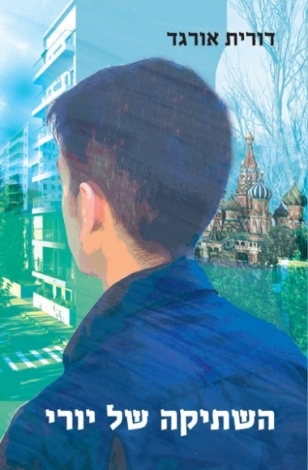
Yuri Breaks His Silence
An intriguing and suspenseful story that begins in Moscow and continues in Israel. Ilyusha, nicknamed Ilish, is a 12-year-old boy who lives in a Moscow neighborhood with his parents, who are both musicians. One day, at the entrance to the building where they live, Ilish meets a strange, silent boy. All attempts to get the boy to talk fail. During the summer vacation, Ilish’s grandmother comes to visit, and the two go to the neighborhood park, where they see that the strange boy has climbed a tree. All of a sudden, the branch he is sitting on breaks and he falls to the ground. The boy is injured and is taken to hospital. Ilish’s grandmother assumes responsibility for him, and she and the boy become close. She visits him in hospital and after he recovers, brings him to her home. The boy’s name is Yuri, but nothing is known about his family, and he is still doesn’t speak.
Meanwhile, Ilish and his parents have moved to Israel. Ilish makes new friends, including a girl from India, learns Hebrew, becomes an outstanding student and likes his new hometown, Ashdod, a lot. In a local park on the sand dunes he meets a boy called Uri, who looks remarkably like the silent boy in Moscow. Is there a connection between Yuri and Uri? Will Yuri find his family and start to speak? The answers are given when Ilish’s grandmother and Yuri also come to live in Israel.
Yet again, Dorit Orgad has spun an engrossing tale about human relations that is cloaked in mystery.

-
“A story that is out of the ordinary … This is a book that will spark enjoyment of reading in our children. ”
-
“Orgad’s writing, as always, flows along while maintaining a richness of language, and through the personal story two motifs emerge: acculturation difficulties that are very foreign to the youth of today, and dilemmas and emotions like envy and anger. ”
